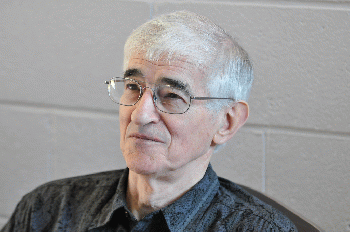Duluth, Minnesota (OpEdNews) June 25, 2024: In 2022, the controversial Irish American biblical scholar, and historical-Jesus specialist, John Dominic Crossan (born in 1934 in Ireland; Doctor of Divinity degree, St. Patrick's College, Maynooth, 1959) published the learned but accessible book Render Unto Caesar: The Struggle Over Christ and Culture in the New Testament (Harper One/ HarperCollins) - he is a gifted writer.
Crossan is controversial primarily because of his densely reasoned 1991 book The Historical Jesus: The Life of a Mediterranean Jewish Peasant (HarperSanFranciso/ HarperCollins).
The American Catholic Dr. Peter Steinfels reviewed Crossan's 1991 book in the New York Times in his article titled "Peering Past Faith to Glimpse the Jesus of History" (dated December 23, 1991):
In Dr. Steinfels' review, he says, "But for many scholars looking not with the eyes of faith but the lenses of historical research, Jesus of Nazareth is an elusive and puzzling figure, one who was probably not born in a stable or even in Bethlehem, whose personal life was a mystery and whose essential message remains subject to vastly different interpretations."
Subsequently, Dr. Steinfels says, "in recent years, different scholars have sketched the historical Jesus as a political rebel, an ancient magician, a maverick Pharisee, a thoroughly Jewish prophet announcing that God was about to restore Israel, and a Hellenistic gadfly with no mission beyond questioning the world's conventions.
"Professor Crossan's [1991] book reflects a shift away from the depiction of Jesus as proclaiming an imminent end of the world and coming of God's kingdom. The professor argues that although Jesus was originally a follower of the apocalyptic prophet, John the Baptist, he became a wisdom teacher using Zen-like aphorisms and puzzling parable to challenge social conventions.
"By His parable, miraculous healings performed without reward, itinerant lifestyle and insistence that meals be shared with all and sundry, Jesus challenged the Mediterranean codes of honor and patronage, the professor says, as well as all the hierarchical and patriarchal assumptions of Jewish religion and Roman imperial power."
Yes, these are claims that Crossan makes in his 1991 book. But why would these claims about the historical Jesus make Crossan's 1991 book controversial among contemporary Christians? What, exactly, do contemporary Christians believe about what biblical scholars refer to as the historical Jesus? Or is it the case, that for many contemporary Christians their sense of the historical Jesus is just a composite of the Jesus portrayed in the four canonical gospels?
Now, on the inside front flap of the dust jacket on Crossan's 2022 book Render Unto Caesar, we are told that it is a "follow-up to his prophetic book God and Empire." In 2007, Crossan published his book God and Empire; Jesus Against Rome, Then and Now (HarperSanFrancisco/ HarperCollins).
In the "Prologue" in his 2007 book God and Empire (pp. 1-5), he says, "I emphasize that contrast between Pilate's Kingdom of Rome as violent repression and Jesus's Kingdom of God as nonviolent resistance because that juxtaposition is the heart of this book, which is an attempt to rethink God, the Bible, and empire, Jesus, Christianity, and Rome" (p. 5).
Now, more recently the American Catholic diocesan priest John Dear has explored three of the four canonical gospels from the perspective of nonviolent resistance in his 2024 book The Gospel of Peace: A Commentary on Matthew, Mark, and Luke from the Perspective of Nonviolence (Orbis Books) - but without any references to Crossan's works.
I reviewed Dear's new 2024 book in my OEN article "John Dear on the Synoptic Gospels and Bottom-Up Nonviolence" (dated January 31, 2024):
(Note: You can view every article as one long page if you sign up as an Advocate Member, or higher).





